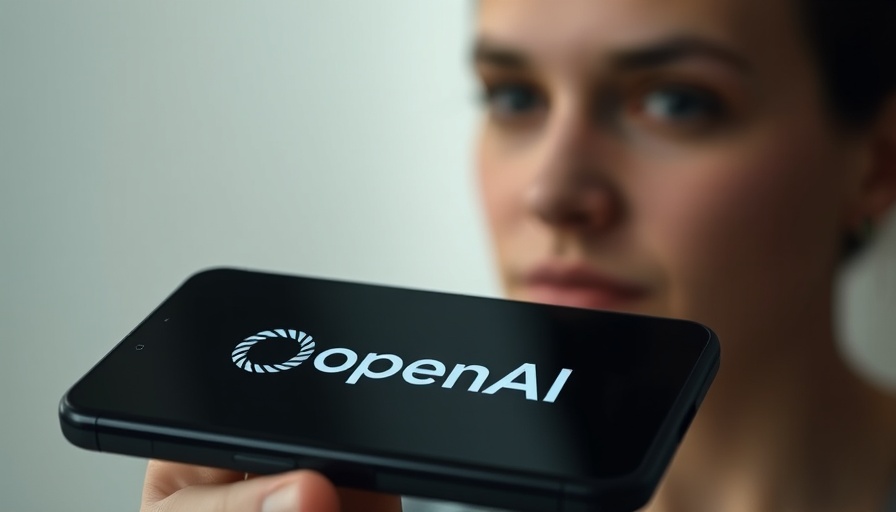
Legal Landscape Shifts: Musk's Challenge Against OpenAI
Elon Musk's ongoing legal battle with OpenAI has taken a significant turn as a U.S. judge expedited the trial concerning the artificial intelligence company's controversial shift to a for-profit model. After Musk's request for a preliminary injunction was denied, U.S. District Judge Yvonne Gonzalez Rogers emphasized the urgency of the case. With "the public interest at stake and potential for harm," Rogers indicated the need for rapid resolution, setting the stage for a trial this fall.
OpenAI's Transition: From Nonprofit to For-Profit
Musk, who co-founded OpenAI as a nonprofit in 2015, argues that the organization's transition undermines its original mission—to develop AI for the greater good. OpenAI's leadership, headed by CEO Sam Altman, contends that this transition is necessary for securing investment in a competitive AI landscape. The tech industry is witnessing an unprecedented race for AI superiority, with companies like Microsoft lining up substantial funding and backing.
What's at Stake? Competition in the AI Space
The lawsuit encapsulates the broader struggle within the tech industry, where priorities regarding AI development are increasingly conflicted between profit motives and altruistic intentions. As companies like Musk's xAI emerge, the question arises: can AI be developed ethically without sacrificing growth and funding? Musk's legal team is confident that the jury will recognize that contributions to OpenAI were intended for public benefit, raising key concerns around accountability in tech pioneering.
Financial Stakes: The Future of AI Funding
OpenAI's ambitious plans for a $300 billion valuation through an upcoming funding round led by SoftBank significantly contrast Musk's xAI, reportedly discussing a $75 billion fundraising target. As competition intensifies, it’s fascinating to consider how each entity's approach could shape the future of AI technologies and their implications for society. The overwhelming financial backing for OpenAI illustrates pronounced confidence in its for-profit model, suggesting this approach may become the norm in AI development.
Public Interest: The Ethical Dilemma in AI Development
At the heart of Musk's contention lies a critical ethical discussion: should AI serve public good, or is profit maximization the prevailing motive? The outcome of this lawsuit might influence not just Musk and OpenAI, but the tech industry as a whole. As these legal proceedings unfold, consumers, tech enthusiasts, and investors will be watching closely, aware of the profound consequences for AI's future role in society.
Keen Eyes on the Trial: Impacts Beyond the Courtroom
As the trial nears, both parties are preparing for a legal showdown that could set precedence for future AI developments and lawsuits alike. Beyond the courtroom, the unfolding drama spotlights critical discussions about the trajectory of AI—a tool that could impact every aspect of life, from economic structures to ethical considerations in technological advancements.
As developments in this case continue to emerge, stakeholders in AI—developers, businesses, and consumers—should prepare to engage with the evolving narrative surrounding technology, ethics, and profitability. While the immediate impact centers around Musk's conflict with OpenAI, its ripples will likely inform broader conversations about the future of artificial intelligence.
 Add Row
Add Row  Add
Add 




 Add Row
Add Row  Add
Add 

Write A Comment